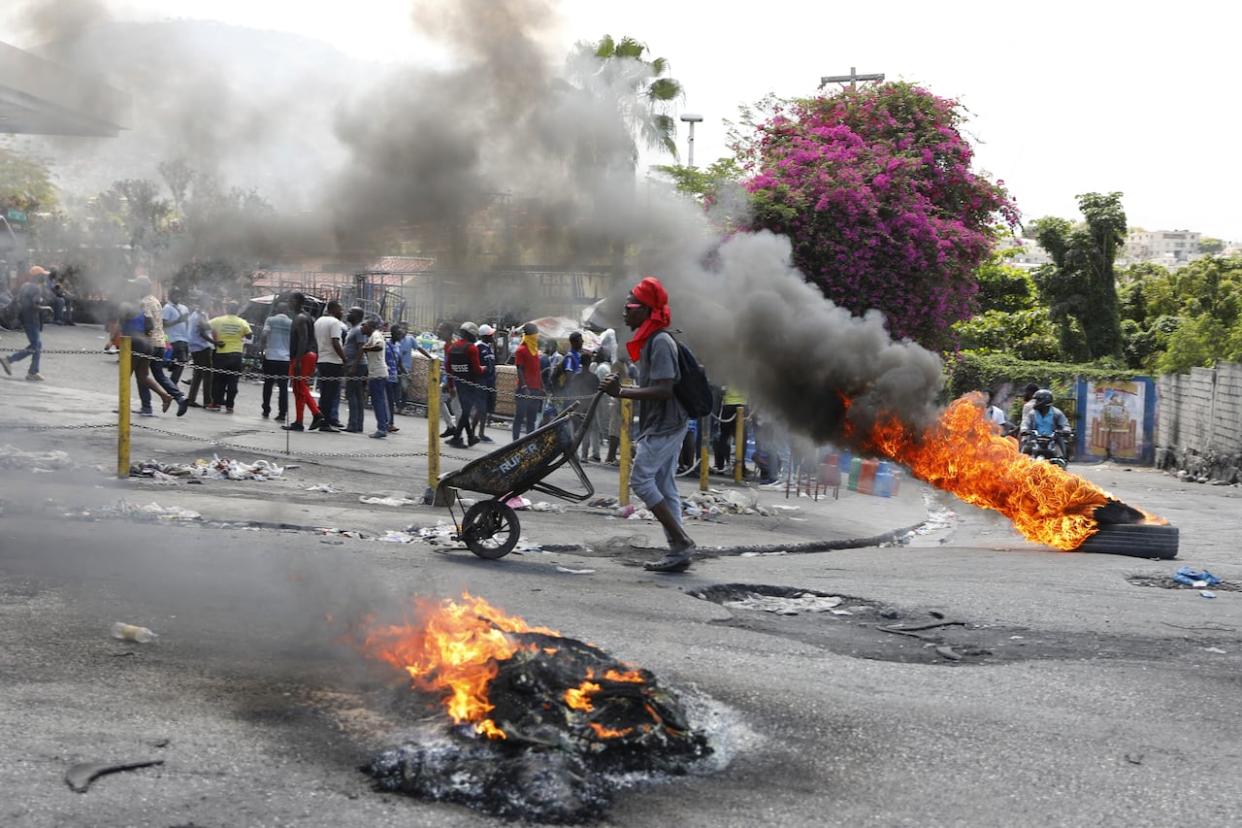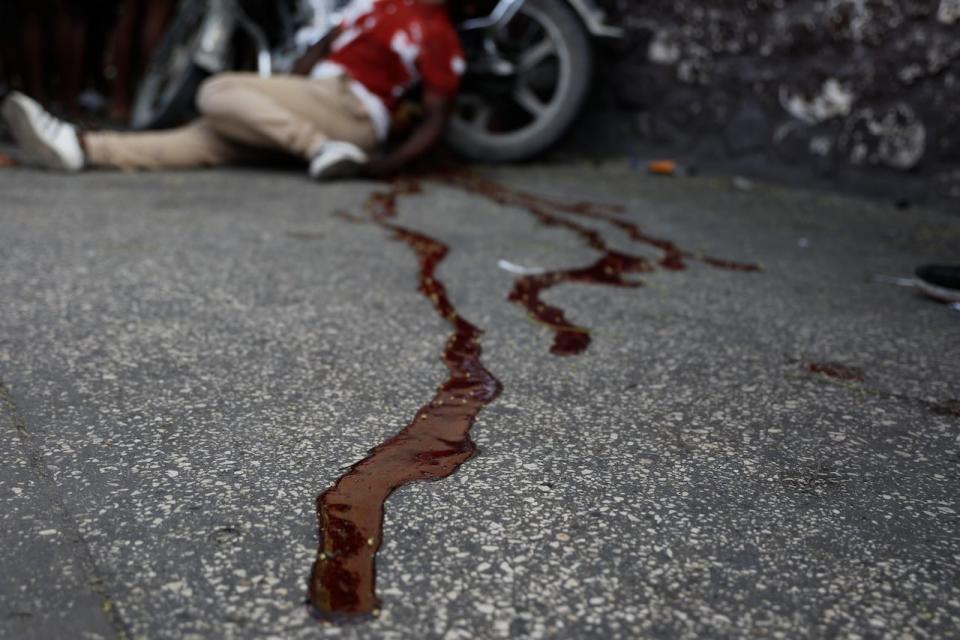Canadian embassy in Port-au-Prince remains open as officials gather in Jamaica for Haiti talks

- Oops!Something went wrong.Please try again later.
- Oops!Something went wrong.Please try again later.
- Oops!Something went wrong.Please try again later.
Canada's embassy in Port-au-Prince, Haiti remains open Monday as Caribbean leaders meet with officials from the United States, Canada and other countries in Kingston, Jamaica to discuss plans to restore order to the country.
Canada's UN Ambassador Bob Rae is at the meetings. He told CBC News that while the embassy in Haiti is open for now, the security situation on the ground will decide how long that remains the case.
Rae said both the airport and the port in Port-au-Prince remain closed, making it difficult to get supplies and food into the country.
"The power of the gangs has extended and expanded because as much as the Haitian national police has tried to do so, on its own it can't respond in a necessary way to establish order," he said.
Gangs have attacked and seized most of the Haitian capital in recent weeks. They've laid siege to the airport, government buildings and prisons, enabling thousands of inmates to escape.
The increasingly powerful gangs have been pushing Haiti's Prime Minister Ariel Henry to resign to prevent what they claim is the beginning of a civil war.
Henry, who is also acting president, was sworn in as prime minister with the backing of the international community, including Canada, after the July 2021 assassination of President Jovenel Moïse.
With the airport closed, Henry has been unable to return to his country since Tuesday, leaving the gangs and other armed groups to fill the power gap. The Dominican Republic, which shares the island of Hispaniola with Haiti, has closed its land border.
Restoring order
According to a statement from the U.S. Department of State, Secretary of State Antony J. Blinken will also be at the meetings, which were convened by the Conference of the Heads of the Caribbean Community (CARICOM).
The U.S. statement said that Blinken is in the country to discuss creating a presidential college to help expedite a political transition in Haiti, and to discuss deploying a multinational security support mission to restore order.
Rae said a number of countries from the region and from Africa are ready to put boots on the ground in Haiti, but Canada will be providing only financial and logistical support.
"Canada will be a part of any combined effort. It's just we're not sending troops," Rae said. "The reason for that is because (Prime Minister Justin Trudeau) wants to insist that it's the Haitians themselves who have to lead the way."

The body of a man lies in a pool of blood alongside his motorcycle in the Delmas area of Port-au-Prince, Haiti on Friday, March 8, 2024. Witnesses say he was shot by two unidentified men on motorcycles. (AP/Odelyn Joseph)
Rae said talks continue aimed at getting more countries to commit to the multinational security force. Rae said the gangs in effective control of Haiti are very well armed.
"Their guns come from the United States and we've got to stop the flow of weapons to the country and we've got to increase the ability of the national police to be able to control things," he added.
Pamela White, a former U.S. ambassador to Haiti, told CBC News that she is not convinced a multinational force that does not include troops from Canada or the United States will be able to stabilize the country.
"Hatians need food, water, shelter, security. And that security is going to have to come first because you can't get water and food and medicine into Haiti … unless you have stabilization," White said.
Reaching a democratic consensus
Over the weekend, Trudeau spoke with Jamaican Prime Minister Andrew Holness and promised to continue Canada's support for the Haitian National Police and member states of CARICOM.
A read-out of that call said both "leaders underlined the importance of the United Nations-authorized multinational security support mission to restore stability in Haiti."
Trudeau also spoke to Prime Minister of Barbados Mia Mottley over the weekend. According to a statement issued by the Prime Minister's Office after the call, the two agreed to help find a political consensus in Haiti that would lead toward fair elections and the restoration of order.
Rae said that it will be all but impossible to hold any form of democratic elections until order is restored on the ground in Haiti.
"Right now, we can't have an election because there is too much insecurity and too much violence," he said.

